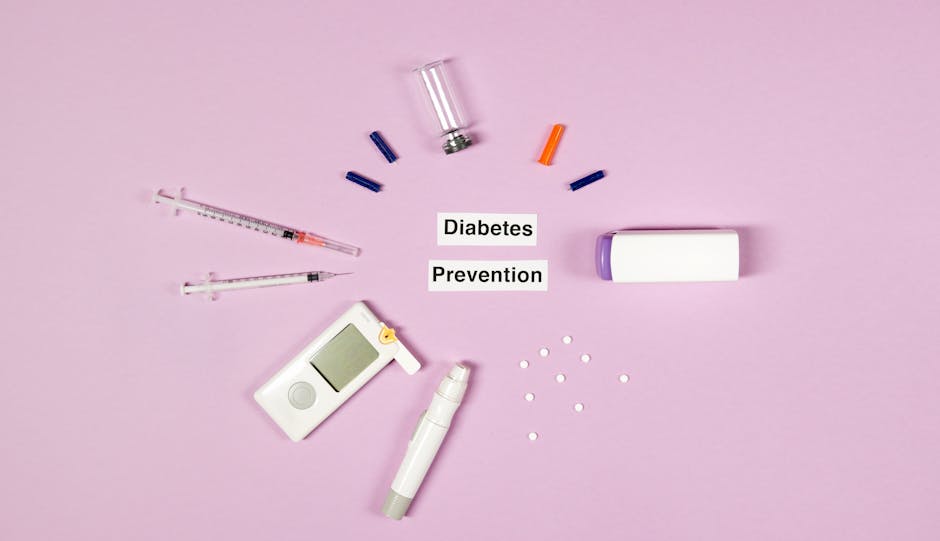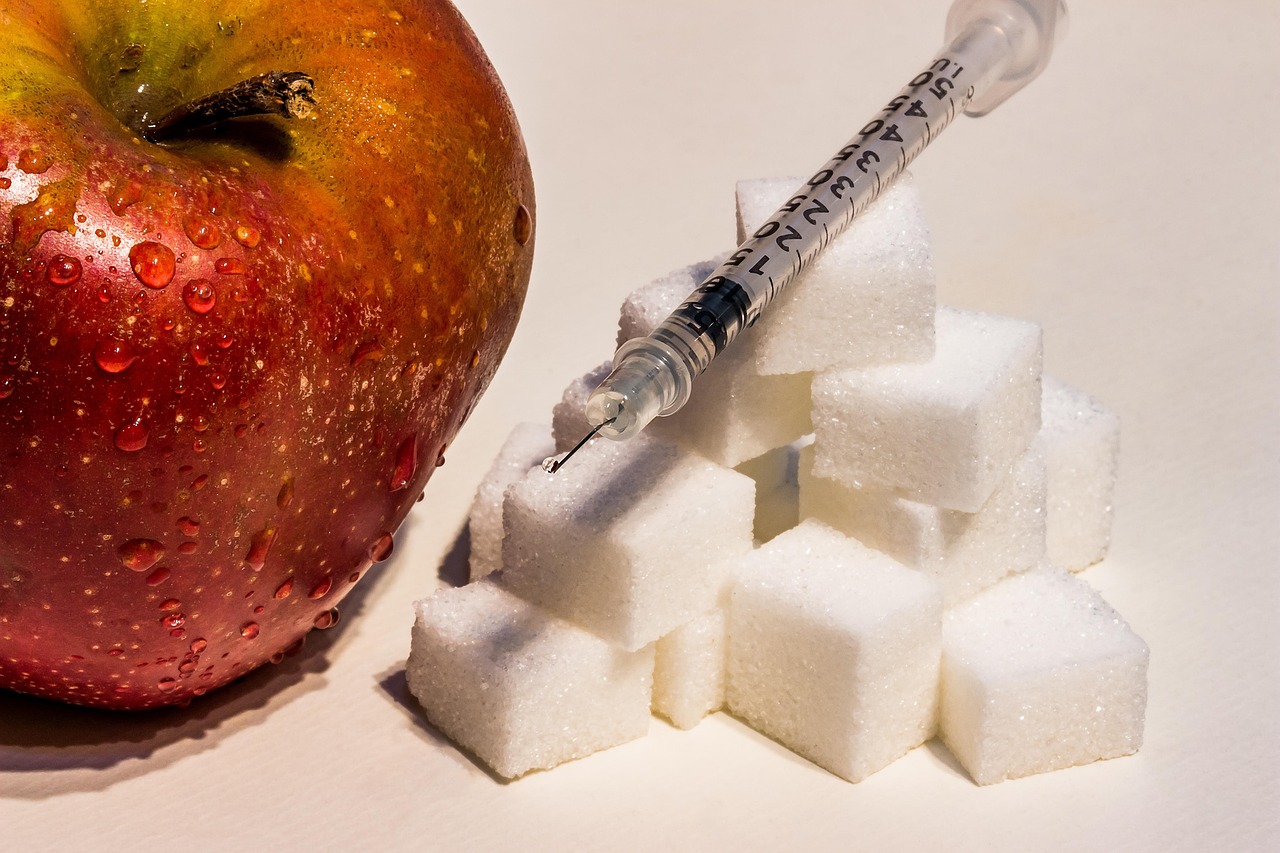- 1. Understanding Type 2 Diabetes
- 2. Dietary Changes: The Cornerstone of Management
- 3. The Role of Physical Activity
- 4. Weight Management: A Key Factor
- 5. Monitoring Blood Sugar Levels
- 6. Stress Management and Mental Health
- 7. Alternative Therapies and Supplements
- 8. Real-World Examples of Success
- 9. Accessing Resources in Washington State
- 10. Frequently Asked Questions

Managing Diabetes Without Insulin for Type 2 in Washington State
Living with Type 2 diabetes can be a challenging journey, especially for those who prefer to manage their condition without insulin. In Washington State, various effective strategies can help individuals control their blood sugar levels, improve their overall health, and maintain a good quality of life. This blog post explores practical methods for managing Type 2 diabetes without insulin, backed by research and expert advice.
Understanding Type 2 Diabetes
Type 2 diabetes occurs when the body becomes resistant to insulin or when the pancreas fails to produce enough insulin. Unlike Type 1 diabetes, where insulin administration is essential, many people with Type 2 diabetes can manage their condition through lifestyle changes, diet, and oral medications. According to the Centers for Disease Control and Prevention (CDC), over 34 million Americans have diabetes, with Type 2 diabetes being the most common form.
Dietary Changes: The Cornerstone of Management
Diet plays a pivotal role in managing Type 2 diabetes. The goal is to maintain stable blood sugar levels while ensuring adequate nutritional intake. Here are some dietary strategies:
- Adopt a Balanced Diet: Focus on whole foods, including vegetables, fruits, lean proteins, whole grains, and healthy fats. The Academy of Nutrition and Dietetics emphasizes the importance of a balanced diet for diabetes management.
- Monitor Carbohydrate Intake: Carbohydrates directly impact blood sugar levels. Opt for complex carbohydrates like legumes, nuts, and whole grains which digest slowly, rather than simple sugars found in processed foods.
- Portion Control: Managing portion sizes helps prevent spikes in blood sugar. Utilizing tools like the Diabetes Plate Method, where half the plate is filled with non-starchy vegetables, a quarter with lean protein, and a quarter with whole grains, can be beneficial.
The Role of Physical Activity
Regular physical activity is crucial for managing Type 2 diabetes. Exercise helps improve insulin sensitivity, lowers blood sugar levels, and promotes cardiovascular health. In Washington State, the scenic outdoor environment provides numerous opportunities for physical activity:
- Walking and Hiking: With abundant parks and trails, engaging in regular walks or hikes can be both enjoyable and beneficial. The Washington Trails Association offers resources to find local trails.
- Group Classes or Sports: Joining a local sports league or fitness class can motivate individuals to stay active. Community centers often provide programs tailored for those with diabetes.
- Strength Training: Incorporating strength training exercises at least twice a week can help build muscle mass, which in turn can improve glucose metabolism.
Weight Management: A Key Factor
Maintaining a healthy weight is essential for managing Type 2 diabetes. Excess weight, particularly around the abdomen, can increase insulin resistance. Here are some strategies for effective weight management:
- Set Realistic Goals: Aim for a gradual weight loss of 1-2 pounds per week. Setting achievable goals can make the process less overwhelming.
- Track Your Progress: Keeping a food diary or using apps can help monitor food intake and physical activity, providing insight into habits that may need adjustment.
- Seek Professional Guidance: Consider working with a registered dietitian or a certified diabetes educator who can provide personalized advice and support.
Monitoring Blood Sugar Levels
Regularly monitoring blood sugar levels is crucial for understanding how different foods, activities, and stressors affect diabetes management. Here are some tips:
- Use a Glucometer: Testing blood sugar levels at various times throughout the day can provide valuable information for making dietary and lifestyle adjustments.
- Keep a Log: Documenting blood sugar readings alongside food intake and physical activity can help identify patterns and correlations.
- Consult Healthcare Professionals: Regular check-ups with healthcare providers can ensure that your management plan is effective and may involve adjusting medications or lifestyle recommendations.
Stress Management and Mental Health
Managing stress is a vital but often overlooked aspect of diabetes care. Stress can lead to fluctuations in blood sugar levels. Here are effective methods to reduce stress:
- Meditation and Mindfulness: Practices such as meditation can help calm the mind and reduce stress levels. Numerous apps and community classes in Washington State offer guided sessions.
- Yoga: Engaging in yoga can improve both physical and mental well-being. Many local studios offer classes specifically designed for those managing chronic conditions.
- Social Support: Connecting with others facing similar challenges can provide emotional support. Consider joining a local diabetes support group or online community.
Alternative Therapies and Supplements
Some individuals explore alternative therapies and supplements to complement their diabetes management plan. Here are a few options, though it’s essential to consult with a healthcare provider before starting any new treatment:
- Cinnamon: Some studies suggest that cinnamon may improve insulin sensitivity and lower blood sugar levels. However, more research is needed.
- Alpha-Lipoic Acid: This antioxidant has shown promise in improving insulin sensitivity, but it should be used under medical guidance.
- Acupuncture: Some individuals find relief from symptoms through acupuncture, which may help with stress management and overall well-being.
Real-World Examples of Success
Many individuals in Washington State have successfully managed their Type 2 diabetes without insulin through lifestyle changes alone. For instance, a case study featured in the National Institutes of Health highlights a woman who implemented a plant-based diet, regular exercise, and stress management techniques, resulting in significant improvements in her blood sugar control.
Another example comes from a local community program focused on education and support for Type 2 diabetes management. Participants reported not only better blood sugar levels but also weight loss and improved overall health after engaging in the program’s structured diet and exercise regimen.
Accessing Resources in Washington State
Washington State offers numerous resources for individuals seeking to manage Type 2 diabetes:
- Washington State Department of Health: The Department of Health provides information on diabetes prevention and management programs.
- Local Diabetes Education Programs: Many hospitals and community health centers offer diabetes education programs that can provide support and guidance.
- Online Support Groups: Websites such as Diabetes.org offer resources and forums for connecting with others living with diabetes.
Frequently Asked Questions
Can Type 2 diabetes be reversed without insulin?
While there is no definitive cure for Type 2 diabetes, many individuals have successfully reversed their condition or achieved remission through substantial lifestyle changes, including diet and exercise.
What are the best foods for managing Type 2 diabetes?
Foods high in fiber, lean proteins, healthy fats, and low glycemic index carbohydrates are beneficial. Examples include vegetables, whole grains, nuts, legumes, and fatty fish.
How often should I check my blood sugar levels?
The frequency of blood sugar monitoring can vary based on individual needs and recommendations from healthcare providers. Generally, checking levels before meals and at bedtime is common.
Is physical activity important for those with Type 2 diabetes?
Yes, regular physical activity helps improve insulin sensitivity and can aid in weight management, both of which are critical for effective diabetes management.
Each individual’s journey with Type 2 diabetes is unique, and managing it without insulin is entirely possible with the right approach. By adopting a balanced diet, staying active, monitoring blood sugar, and seeking support, many individuals in Washington State can live healthy, fulfilling lives while managing their diabetes effectively.
